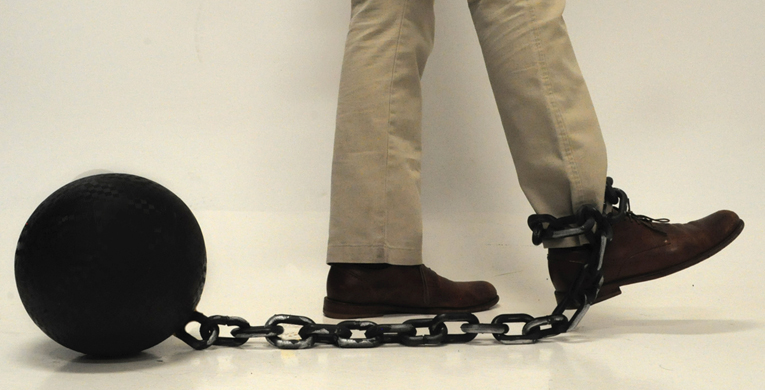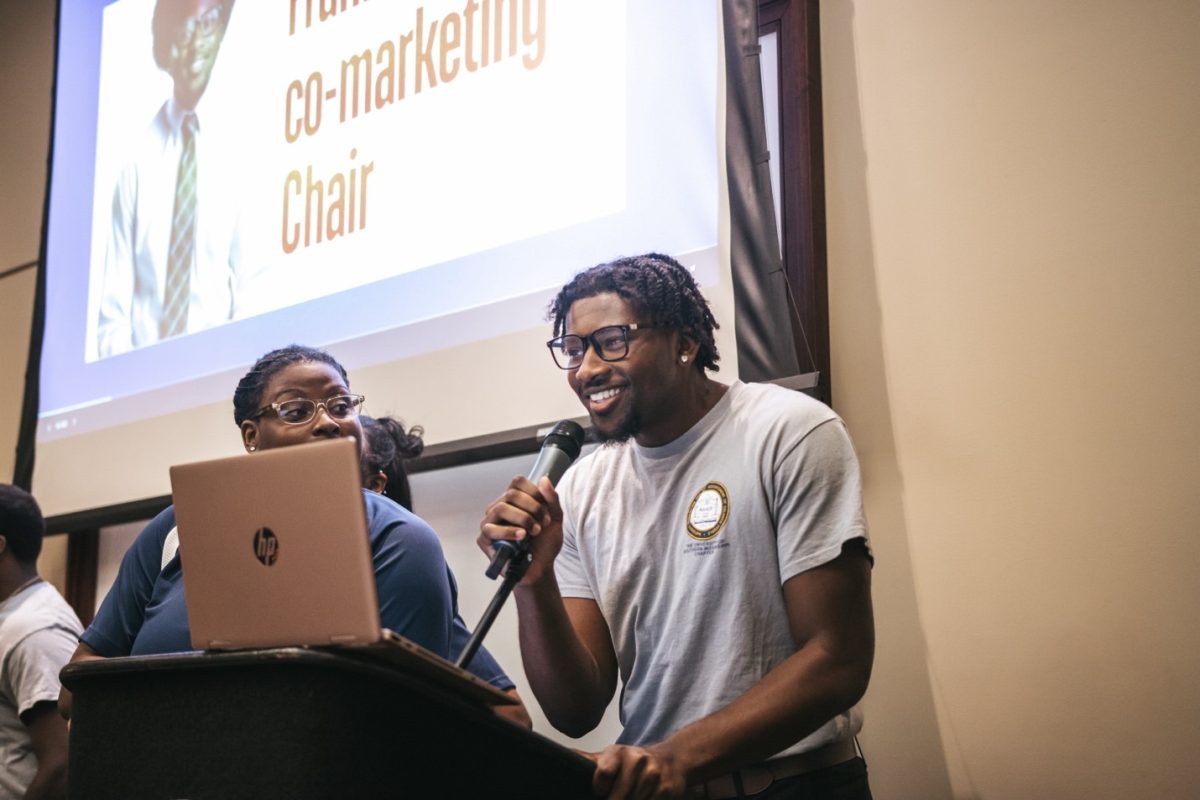
Twenty-year-old Brandon Hardin, a business major at The University of Southern Mississippi, was arrested last week on a felony charge of a computer threat to cause injury.
“The red will flow tomorrow in JGH. I recommend missing class,” the Yik Yak post read.
A $40,000 bond was posted Sept. 24 for Hardin. Glenn White, Hardin’s attorney, told the Associated Press that the student comes from a well-respected family and carries a 3.7 GPA.
As of now, Justice Court Judge Gay Polk-Payton has ruled Hardin is no longer allowed on the USM campus without invitation.
If convicted with the felony, Hardin will become one of nearly 130,000 Mississippians living with a felony conviction.
When Ryan Bowman, 25, of Indianapolis was arrested as a teenager, little did he think that what followed would change his life forever.
“Three charges of burglary times, three charges of criminal gang activity, car theft, possession of firearms,” Bowman said. “I spent 13 months fighting my case in county jail, then spent my time incarcerated for four years, 11 months and two days.”
Bowman was charged at 19 for a crime he committed at 17, so he was tried as an adult “with no sympathy.” Now, Bowman lives with a record that continues to have its repercussions.
A felony conviction occurs when an individual is found guilty of a serious crime. Felonies in Mississippi range from murder – the most serious felony crime in the state – to sexual battery, kidnapping, aggravated assault, robbery, bad checks and larceny.
Immense amounts of fines follow a criminal conviction. From attorneys to court fees, convicted felons face paying back fines for many years after their arrest.
“I had to pay $1,500 in restitution, $700 in court costs, $13 dollars a day when I was on (five months of) house arrest,” Bowman said. “Not only that, I had to pay for probation, which costs $85 a month and get drug tested every two to three weeks at roughly $30 a pop. It’s tough.”
While debt can be paid, many rights taken away by a felony conviction cannot be simply bought back.
Loss of rights due to a felony conviction takes many forms, from disenfranchisement to exclusion from voting, even revoking the right to possess firearms.
Hattiesburg Police Lieutenant Jon Traxley has seen many felony convictions during his time with the Hattiesburg Police Department.
“Once you are convicted in the state of Mississippi, you lose the right to the possession of a weapon,” Traxley said. “That’s not just guns. That’s machetes, boxcutters, any of those types of blades are considered weapons.”
A felony conviction can even go as far as taking away the right to vote. “Depending on the type of charge, you may not be able to elect an official,” Traxley said.
According to “The Sentencing Project,” in 2010, an estimated 5.85 million people in the United States (2.5 percent of the nation’s voting population, excluding Washington, D.C.) could not vote because of a felony conviction.
Mississippi ranks second behind Florida for the highest percentage of disenfranchised voters, totaling 182,814 voters or 8.27 percent of the voting population.
And if job hunting was not already difficult in the current economy, imagine living with a felony.
“Any kind of job that receives federal assistance or grants in the state of Mississippi cannot hire a convicted felon,” Traxley said. “Take, for instance, the City of Hattiesburg receives grant money. Most felony convictions bar people from working in the city because of that, and many employers will not consider it.”
Bowman recalls his hard time finding a job.
“When I was released from prison, I was put on house arrest, but the world seemed brand new and exciting,” Bowman said. “I felt finally free, but was soon faced with the difficulty of finding a job.”
While it is generally illegal to throw out all applications that check ‘yes’ to criminal past, many still do.
Bowman said it seemed like everywhere he applied, he was denied for his felonies or house arrest. He eventually found a job roofing and remodeling homes for a company located in Indianapolis.
Financial aid and Pell Grants also are harder to obtain if felonies are involved.
According to the U.S. Department of Education, if an individual’s incarceration was for a drug-related offense or if an individual is subject to an involuntary civil commitment for a sexual offense, his or her eligibility may be limited as well.
If an individual is convicted of a drug-related offense while receiving any federal aid, eligibility may face suspension unless strict rehabilitations are met.
“I decided to just pay for school because the obstacles for federal aid were too demanding,” Bowman said.
Some stigma against felons exists among the rest of the population as well.
Freshman Chloe Clutter said she is uncertain about dating a convicted felon based on the obstacles they must face.
“I don’t think I would date a felon because I think it could really affect my personal life if we decided to be together further down the line,” Clutter said. “Many places bar felons from renting there, so it could be a problem if we decided to live together, and I’m not sure how my family would react.”
Others, such as Jamiah, a sophomore who asked his last name remain anonymous, do not share the same sentiment. “Even if someone robbed a bank, they probably had a reason for it. It really depends on the conviction. You should always get to know someone.”
So, the question of fairness?
Many organizations, such as The Sentencing Project, work to reduce the punishments of felony convictions in order to help the disenfranchised regain their rights.
“I never realized (my arrest) would cost me my whole life,” Bowman said. “I missed five years watching my brothers grow up. That eats me every day, you know?”
“You will always be looked at differently. You will always have that rain cloud above you.”
Bowman feels many people need to know their rights and the consequences of actions.
“I feel like our justice system focuses on money. While I do not feel this justice system is fair, I feel it is needed,” Bowman said. That is something both Traxley and Bowman can agree on.
“The punishment is harsh, but is intended to send a message,” Traxley said. “It is our job to protect our community. We must act on threats like (Hardin’s Yik Yak post), even if it’s a silly prank,” Traxley said.


























